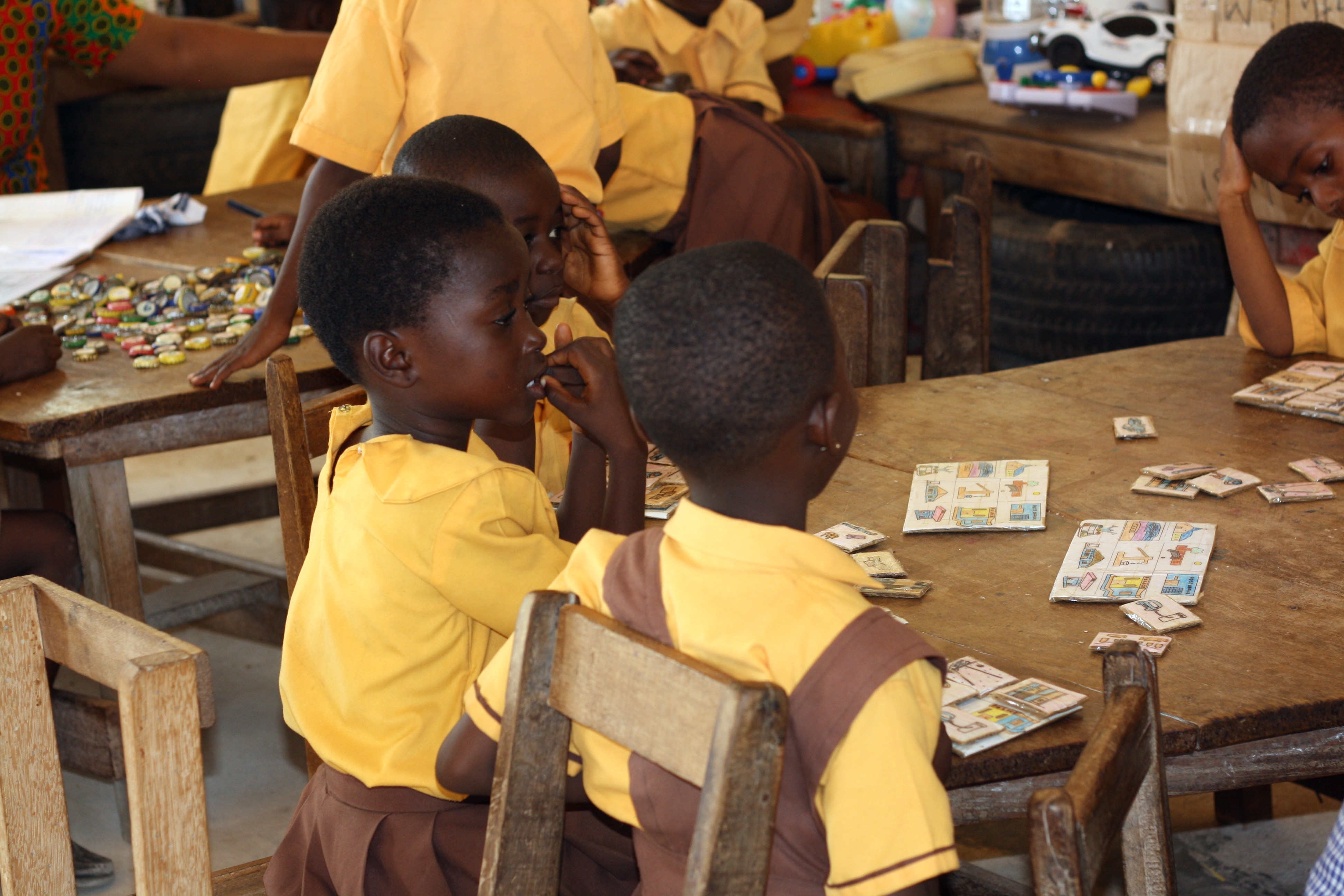Evidence-Informed Early Childhood Teacher Training in Ghana
Abstract
Sabre Education used results to inform its program design.
In Ghana, an IPA research team worked with Sabre Education and Ghana Education Service to conduct a randomized evaluation of the Fast Track Transformational Teacher Training Program (FTTT). Results showed that although the program functioned as intended by significantly improving student-teachers’ implementation and knowledge of the national kindergarten curriculum, these impacts faded once newly qualified teachers were posted at their new schools. The findings highlighted system-level challenges with both the posting of new teachers and the absence of support in their first teaching year. These findings propelled Sabre Education to adjust their program to address the challenges teachers faced at their new schools. The changes were implemented during the 2017-2018 academic year.

The Challenge
Child learning outcomes remain low across sub-Saharan Africa, despite increased access to free primary education and higher school enrollment. Early childhood education (ECE) represent a crucial window for development, as it is during these early years that children form the basis for future learning. However, many early childhood teachers are undertrained, resulting in poor learning and development for their young pupils despite being in school. Experiential learning, in which teachers practice the pedagogies and techniques that they are studying, is commonly thought to be a critical ingredient for successfully training teachers. Yet, many teaching schools do not provide intentional training and mentoring for student-teachers who are learning the craft for the first time.
The Evidence
Researchers worked with Sabre Education and Ghana Education Service to conduct a randomized evaluation of the Fast Track Transformational Teacher Training Program (FTTT), a training program for Ghanaian student-teachers implemented by Sabre Education in partnership with Ghana’s colleges of education. The evaluation assessed the impact of the enhanced student-teacher training on teacher knowledge, classroom quality, teacher well-being, and child outcomes the following year, when student-teachers were posted as full time kindergarten teachers.
The evaluation found that the training program significantly improved student-teachers’ implementation of the curriculum and their knowledge of early childhood education and development, and these impacts persisted the following year. The program’s impacts on teachers’ professional well-being were mixed: FTTT teachers had higher levels of motivation and feelings of personal accomplishment, but lower levels of job satisfaction when placed as full-time teachers. One year after being placed as full-time teachers, these improvements faded in size and had not translated into improved child learning or development outcomes.
The research team identified several factors that likely led to the fading of effects for newly qualified teachers in their placement year, including a lack of on-going support, a lack of teaching and learning materials, and lack of support from other teachers and school leadership for the new (play-based) approaches at their placement schools.
The Impact
In response to these findings, Sabre Education decided in 2017 to incorporate one year of support to newly qualified teachers into the FTTT project. During the 2017/18 academic year, Sabre also introduced a much more supportive approach to working with newly qualified teachers:
- New teacher resource pack made up of a full set of classroom implementation guides and week by week session plans with resource making templates, theme-based story books, dark-skinned plastic dolls and locally made wooden construction blocks. This represents a starter set of classroom resources to cover both kindergarten years.
- New teacher refresher training – two days of refresher training to respond to the areas of implementation which the teachers are finding most challenging.
- Head Teacher Training – three days of training and sensitization for head teachers to introduce the core concepts of the FTTT methodology and associated kindergarten pedagogy, as well as providing training in FTTT-related supervision and support functions.
- Ghana Education Service District-Level Sensitisation – one day workshops for all relevant district staff, to disseminate information about the new kindergarten pedagogy, and the ways in which the district officers can support newly qualified teachers implementing this new approach.
Overall, Sabre Education is working to adjust its program for greater, sustained impact. Sabre is also serving as a model for other organizations in its willingness to be evaluated, and in its commitment to learn and adapt based on the study’s findings.
This work is licensed under a Creative Commons Attribution 4.0 International License.












